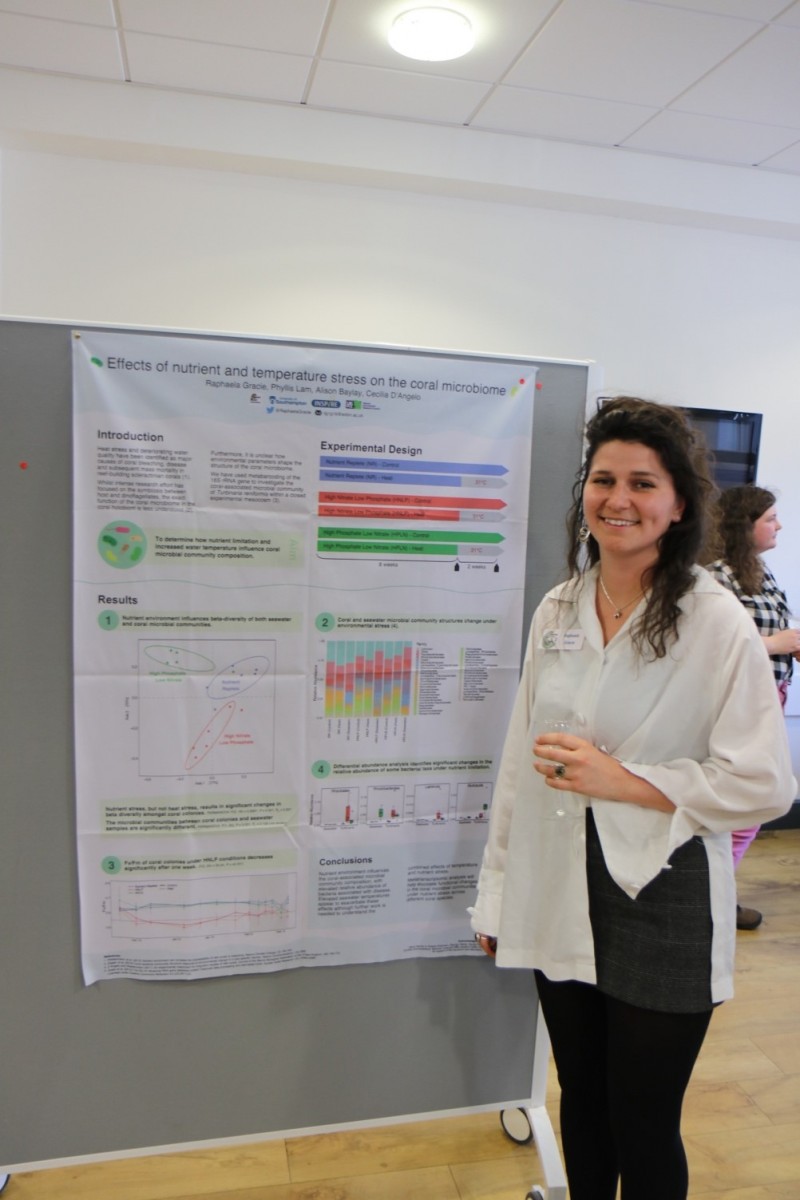Marine Biological Association Postgraduate Conference 2023: from kelp forests to funicular railways
Raphaela Gracie
University of Southampton

This April, the annual Marine Biological Postgraduate Conference was held in Aberystwyth, a picturesque town located between the Cambrian Mountains and Cardigan Bay on the west coast of Wales. The MBA Postgraduate Conference is different to any other I have been to because it is run by postgraduate students, for other postgrads and early career researchers. This ultimately results in a cosy, relaxed atmosphere, where attendees can present and share their work with less pressure than you may feel attending larger conferences!
After a five-hour drive through Wales, we were pleasantly surprised with an informal ice breaker at the local watering hole, the Bottle and Barrel. Despite the intimidating choice of local craft beers and ciders (over 300!!), we had a lovely first evening getting to know each other and finding out about each other’s work. On the walk home, we started to feel the effects of Storm Noa, who the next day, presented us with some impressive waves along the coast!
The conference had an impressive line-up of keynote speakers, from Professor Pippa Moore talking about the potential of UK kelp forests for blue carbon storage to Dr Emma Sheehan discussing ecosystem resilience in marine protected areas. The poster session was preceded by an informative workshop on visual communication in science by Amy Dozier. For my favourite workshop of the conference, we had the chance to discuss and learn about communication between scientists and the fishing community, and how we can work together to have the best possible outcome for marine ecosystems.
The standard and breadth of talks and posters presented by postgraduate students was impressive, from figuring out how to calculate the surface area of jellyfish to the diets of Pacific oysters. I loved the diversity of topics. I had a fantastic time presenting my poster on the effects of nutrient on the coral microbiome, even if I had all but lost my voice by the end of the session!
The conference committee worked hard not only on the talks and workshops, but also on delivering a packed social calendar, with a seafront walk in the morning, pub quiz, trip up the funicular railway, and even some karaoke. This conference really was one to remember and I’d recommend it to every postgraduate student and early career researcher working in the marine sciences. Lastly, I’d like to say a massive thank you to the Challenger Society, whose travel awards make conferences more accessible for students like myself.
Profile:
After spending a year studying art and design at the Arts University Bournemouth, I made the unconventional leap into studying for a BSc in Biochemistry at King’s College London. After a few detours working for climate change NGOs and on offshore wind projects, I landed in Southampton to start my PhD in coral reef biology. I’m now in my second year, investigating the role of the microbiome in coral bleaching in the Coral Reef Laboratory. I’m interested in how seawater nutrient availability influences the diverse community of microbes associated with reef-building corals, and how these microbes contribute to coral reef health.
Latest News
Royal Society Publishing Photography Competition 2025
Please see a message from the Royal Society below:
We are delighted to announce that the 2025 Competition is now open for entries until 15 August for a chance to win £1000! The competition celebrates the power of photography in conveying the wonder of science happening all around us and photographs can be submitted in the categories of: Astronomy, Behaviour, Earth Science and Climatology, Ecology and Environmental Science, and Microimaging.
The competition is free to enter and open to anyone studying or working in science at graduate level or above. Category winners will receive a one-year membership to the Royal Photographic Society and the overall winner will receive a grand prize of £1,000. Find out more: https://bit.ly/RSPphotocomp
October 2025 MEDIN Workshop: Marine Data Management, Governance and the MEDIN toolset
The Marine Environmental Data and Information Network (MEDIN) are pleased to announce that registration is now open for the next occurrence of our popular free online training workshop: ‘Marine Data Management, Governance and the MEDIN toolset’ on the 13th – 17th October 2025 on OceanTeacher Global Academy.
Marine Data Management, Governance and the MEDIN toolset
The Marine Environmental Data and Information Network (MEDIN) and OceanWise are delighted to invite you to attend our popular free online training workshop: ‘Marine Data Management, Governance and the MEDIN toolset’ on the 19th – 23rd of May 2025.
